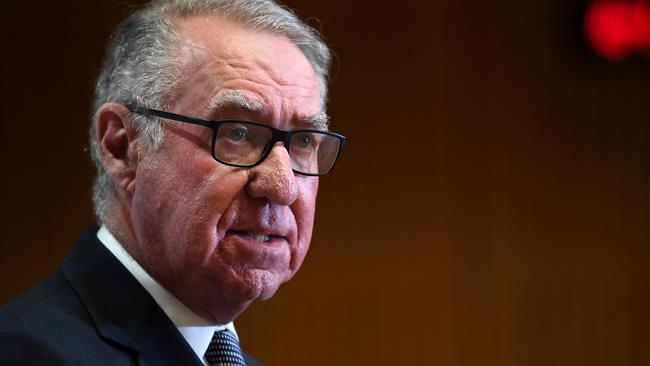Sydney Airport shareholders vote yes to $23.6bn sale
Shareholders will be paid out within weeks after voting ‘yes’ to the sale of Australia’s largest gateway for $23.6bn.

The $23.6bn sale of Sydney Airport to a US-led consortium has been approved by shareholders, despite a range of misgivings being aired before the final vote at Thursday’s scheme meeting.
Final results reported to the ASX showed 96 per cent of the votes cast were in favour of the $8.75 a share offer from the Sydney Aviation Alliance.
The “yes” votes were lodged by 79.29 per cent of shareholders, or 13,833, while 3612 or 20.71 per cent voted against the deal.
To go ahead, the sale needed the support of 75 per cent of shareholders, and 50 per cent of those present at the scheme meeting, which it achieved.
In the course of the meeting, ten shareholders spoke out against the sale to the Sydney Aviation Alliance, made up of New York-based IFM Investors, AustralianSuper, QSuper and the US owned Global Infrastructure Partners.
One shareholder demanded to know why the board had not held out for more money, while others asked why they were not given the same option as major shareholder UniSuper to roll their stake into the new company.
Shareholder advocate Stephen Mayne grilled Sydney Airport board chairman David Gonski on his track record of “selling” companies that he served as a chair or director.
“Are you too agreeable when it comes to take over bids?” asked Mr Mayne.
“It’s not something you go out to achieve,” said Mr Gonski, pointing out that the board rejected the first two offers of $8.25 and $8.45 a share from the Sydney Aviation Alliance.
“In the case of Sydney Airport, I love Sydney Airport – I think it’s a wonderful asset (but) it’s not about me. It’s about the shareholder. If the shareholders don’t want something, they would either vote it down or not accept the bid. I’m a servant of the shareholders.”
Mr Gonski said there was no suggestion Sydney Airport would be worse off as a result of the sale to the consortium.
“People wanting to buy this airport doesn’t indicate that the airport is going south, quite the contrary,” he said.
“It’s an asset they’re prepared to pay for. We think the price is a good price.”
He repeatedly referred to the findings of the independent valuer that the $8.75 a share price represented good value for Sydney Airport, as Australia’s largest gateway.
“I don’t think it’s a question of what I support and indeed in saying we recommend this deal, we’re not making a judgment about who is buying it,” Mr Gonski said.
“What we’re doing is working out where we believe the growth will be, and testing it and working out the price today for it, and interestingly and correctly the independent valuer has done that also, and all of us have concluded that $8.75 is fair and reasonable.
“I might also say that there are many shareholders who want this to happen.”
With the vote going in favour of the offer, shareholders could expect to be paid out as soon as March 9, 2022.
The Australian Competition and Consumer Commission and Foreign Investment Review Board have cleared the deal which will now go the New South Wales Supreme Court for approval on February 9 after which Sydney Airport will be delisted from the ASX.
IFM Investors chief executive and Sydney Aviation Alliance spokesman, David Neal welcomed the outcome of the vote, and said they would “continue to work closely with the airport and other relevant stakeholders to finalise the transaction”.
“Upon completion of the transaction, Sydney Airport will continue to be majority Australian owned, with millions of working Australians to be invested in Sydney Airport through their superannuation,” Mr Neal said.
In the first half of 2021, the airport reported a loss of $97.4m due to big falls in revenue from retail, aeronautical services and carparking.
Prior to the Covid pandemic, 40 million people a year passed through the airport’s three terminals, a far cry from last year’s result of 7.97 million people.
Recent passenger figures for Sydney Airport revealed the recovery from Covid was still in its infancy, with international travellers down 85 per cent on 2019 levels in the first 15-days of January, and domestic travellers at 58 per cent below pre-pandemic numbers.




To join the conversation, please log in. Don't have an account? Register
Join the conversation, you are commenting as Logout